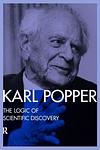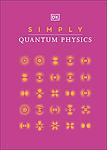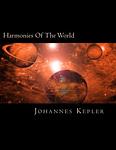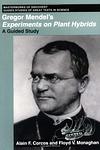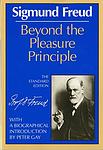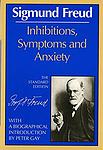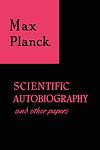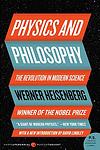The Greatest German, Austrian "Science" Books of All Time
Click to learn how this list is calculated.
This list represents a comprehensive and trusted collection of the greatest books. Developed through a specialized algorithm, it brings together 305 'best of' book lists to form a definitive guide to the world's most acclaimed books. For those interested in how these books are chosen, additional details can be found on the rankings page.
Genres
The category of "Science" in books encompasses a wide range of topics related to the natural world, including physics, chemistry, biology, astronomy, and more. These books may explore scientific theories, discoveries, and advancements, as well as the history and philosophy of science. They may also cover practical applications of science, such as technology and medicine. Overall, the Science category offers readers a deeper understanding of the world around them and the scientific principles that govern it.
Countries
Date Range
Reading Statistics
Click the button below to see how many of these books you've read!
Download
If you're interested in downloading this list as a CSV file for use in a spreadsheet application, you can easily do so by clicking the button below. Please note that to ensure a manageable file size and faster download, the CSV will include details for only the first 500 books.
Download-
1. The Interpretation of Dreams by Sigmund Freud
This groundbreaking work explores the theory that dreams are a reflection of the unconscious mind and a means of understanding our deepest desires, anxieties, and fantasies. The book delves into the symbolism of dreams and their connection to repressed thoughts and experiences, proposing that they are a form of wish fulfillment. The author also introduces the concept of "dream work," which transforms these unconscious thoughts into the content of dreams, and discusses various methods of dream interpretation.
The 143rd Greatest Book of All Time -
2. Relativity by Albert Einstein
This book is a comprehensive introduction to the theory of relativity written by the physicist who developed the theory. It covers both the special and general theories of relativity and provides an accessible explanation of the physics involved, including the nature of light, time, and gravity. The book also discusses the philosophical implications of relativity and its impact on our understanding of reality. Written for a general audience, it aims to make complex scientific concepts understandable to non-experts.
The 346th Greatest Book of All Time -
3. The Rings of Saturn by W. G. Sebald
"The Rings of Saturn" is a richly detailed travelogue that follows the narrator's journey along the coast of Suffolk, England. The narrative weaves together history, literature, and personal anecdotes, exploring topics as diverse as the decline of the herring industry, the horrors of colonialism in the Congo, and the life of philosopher Sir Thomas Browne. The book is characterized by its melancholic tone, its digressive style, and its meditative reflections on memory, time, and decay.
The 1002nd Greatest Book of All Time -
4. The Logic of Scientific Discovery by Karl Popper
This book is a significant work in the philosophy of science, proposing a methodology for scientific discovery that challenges traditional inductive reasoning. The author argues that scientific theories can never be proven definitively, but can only be corroborated or falsified through empirical testing. He introduces the concept of falsifiability as the key criterion for distinguishing scientific theories from non-scientific ones. The book also delves into the problems of induction, demarcation, and the relationship between theory and observation in scientific practice.
The 1525th Greatest Book of All Time -
5. On Aggression by Konrad Lorenz
"On Aggression" is a scientific study that explores the concept of aggression in both animals and humans from an ethological (study of animal behavior) perspective. The author argues that aggression is an innate and necessary instinct that has helped species survive and evolve. However, he also emphasizes that this instinct, when unchecked or misdirected, can lead to destructive behavior and violence. The book provides a comprehensive analysis of the biological roots of aggression, its role in the evolution and survival of species, and its implications for human society.
The 1814th Greatest Book of All Time -
6. Galileo by Bertolt Brecht
This play delves into the life of the renowned Italian scientist, Galileo Galilei, who challenged the church's belief in a geocentric universe. It explores his struggles against the Catholic Church, his recantation, and the consequences of his actions on his life and those around him. The narrative also examines the conflict between science and religion, the ethics of scientific discovery, and the price of truth.
The 1877th Greatest Book of All Time -
7. What Is Life? by Erwin Schrödinger
"What is Life?" is a scientific exploration that delves into the intersection of physics and biology. The book presents the idea that life, at its most basic level, operates according to the laws of physics and chemistry. It introduces the concept of an "aperiodic crystal" that contains genetic information in its configuration of covalent chemical bonds, which later inspired the discovery of the structure of DNA. The book also discusses entropy and negentropy, suggesting that life feeds on negentropy to counteract the natural process of increasing entropy.
The 2031st Greatest Book of All Time -
8. King Solomon's Ring by Konrad Lorenz
This book is a fascinating exploration of animal behavior by a renowned zoologist. It delves into the author's personal experiences and observations of animals in their natural habitats, focusing particularly on birds, dogs, and jackdaws. The author uses these observations to draw conclusions about animal psychology and behavior, often comparing it to human behavior. The book is named after the biblical King Solomon, who was said to have a ring that allowed him to understand the language of animals.
The 2046th Greatest Book of All Time -
9. The Tao of Physics by Fritjof Capra
The book explores the parallels between modern physics and eastern mysticism. It draws connections between quantum mechanics, relativity theory and concepts in Hinduism, Buddhism, Taoism, and Zen. The author argues that the two seemingly disparate areas of study - physics and mysticism - both seek to understand the fundamental nature of the universe and that they do so in strikingly similar ways. The book challenges conventional thinking and encourages readers to see the world from a more holistic, interconnected perspective.
The 2434th Greatest Book of All Time -
10. The Swarm by Frank Schatzing
"The Swarm" is a science fiction novel that explores the disastrous consequences of mankind's exploitation of the world's oceans. The narrative follows a group of scientists around the world as they try to understand a series of inexplicable, catastrophic natural disasters. They eventually discover that these events are not random but are the result of a collective intelligence in the sea, a swarm of marine life that has decided to fight back against humanity's destruction of their habitat. The book combines elements of ecological thriller, disaster novel, and speculative fiction as it explores the potential consequences of human interference with the natural world.
The 3162nd Greatest Book of All Time -
11. Ideas and Opinions by Albert Einstein
This book is a collection of essays, letters, and speeches from a renowned physicist, offering his thoughts on a wide range of topics. It includes his insights on science, philosophy, religion, politics, peace, education, liberty, and morality. The physicist's reflections on his own scientific discoveries and the theories of other great thinkers are also discussed. This compilation provides a comprehensive view of his intellectual development and personal beliefs.
The 3412th Greatest Book of All Time -
12. Function of the Orgasm by Wilhelm Reich
This book presents a groundbreaking exploration of human sexuality, arguing that sexual repression leads to various psychological disorders. The author, a psychoanalyst, introduces the concept of "orgastic potency", which is an individual's ability to fully surrender and discharge pent-up sexual energy during the sexual act. He contends that societal norms and moralistic attitudes towards sex often hinder this release, leading to various neuroses and other psychological issues.
The 4151st Greatest Book of All Time -
13. Uncertainty Principle by Werner Heisenberg
"Uncertainty Principle" is a seminal work in quantum mechanics that explores the concept that it's impossible to simultaneously measure the exact position and momentum of a particle. This principle has profound implications for our understanding of the physical world, challenging traditional notions of cause and effect and deterministic laws of physics. The book details the development, interpretation, and implications of this principle, providing a comprehensive overview of one of the most fundamental concepts in quantum physics.
The 4151st Greatest Book of All Time -
14. The Harmony of the Worlds by Johannes Kepler
"The Harmony of the Worlds" is a scientific text that presents the author's innovative and groundbreaking theories on planetary motion. The author proposes that the movements of the planets in our solar system are not random, but rather follow precise mathematical relationships, likening these celestial patterns to harmonious musical notes. The book is a fundamental work in the history of astronomy, and it has had a profound influence on our understanding of the universe and its laws.
The 5086th Greatest Book of All Time -
15. Experiments on Plant Hybridization by Gregor Mendel
This seminal work in the field of genetics presents the results of a series of experiments conducted on pea plants, which led to the discovery of fundamental laws of inheritance. The author meticulously cross-bred different varieties of peas and meticulously recorded the traits of their offspring, leading to the formulation of the principles of segregation and independent assortment. These principles, which underpin modern genetics, explain how traits are passed from parents to offspring and how different traits are inherited independently of each other.
The 5277th Greatest Book of All Time -
16. The Invention Of Nature: Alexander Von Humboldt’s New World by Andrea Wulf
"The Invention of Nature" is a biographical account of Alexander von Humboldt, a 19th-century explorer, scientist, and naturalist who revolutionized the way we understand the natural world. Andrea Wulf chronicles Humboldt's travels across South America, his encounters with indigenous peoples, and his groundbreaking scientific discoveries that challenged prevailing notions of the natural world. Humboldt's ideas about interconnectedness and the unity of nature were ahead of their time and continue to influence environmentalism and conservation today. Wulf's book is a masterful exploration of one of history's most fascinating and influential figures.
The 7072nd Greatest Book of All Time -
17. Beyond the Pleasure Principle by Sigmund Freud
Beyond the Pleasure Principle is a seminal work in which the author introduces his theory of the death drive, arguing that human behavior is driven not only by the instinct to seek pleasure and avoid pain (the pleasure principle), but also by a fundamental, unconscious compulsion towards self-destruction (the death drive). The book is notable for its exploration of traumatic memory and repetition compulsion, as well as for its controversial departure from the author's previous theories of psychoanalysis.
The 7960th Greatest Book of All Time -
18. The Ego and the Id by Sigmund Freud
This book presents a detailed exploration of the human psyche, delving into the complex relationship and interaction between the conscious and unconscious mind. The author introduces his structural model of the mind, dividing it into the id, ego, and superego. The id is driven by primal urges, the ego seeks to mediate between the id and reality, and the superego represents internalized societal norms. The book examines how these parts of the mind conflict and cooperate, and how they influence human behavior and mental health.
The 7960th Greatest Book of All Time -
19. Inhibitions, Symptoms, and Anxiety by Sigmund Freud
This book is a comprehensive exploration of the psychoanalytic theories of anxiety, as well as the role of inhibition and symptoms in mental health. The author delves into the idea that anxiety is a result of repressed libidinal energy and presents his theories on the causes and treatments of neuroses. The book also discusses the relationship between the conscious and unconscious mind, and the impact of childhood experiences on adult behavior.
The 7960th Greatest Book of All Time -
20. Scientific Autobiography and Other Papers by Max Planck
This book is a compilation of the author's scientific autobiography and other scientific papers, providing an insightful look into his life and work. The author, a prominent physicist, discusses his contributions to quantum theory and his experiences during World War II. The book also includes his thoughts on philosophy and religion, and how they intersect with his scientific work. This collection provides an intimate look into the mind of one of the most influential scientists of the 20th century.
The 7960th Greatest Book of All Time -
21. Physics and Philosophy by Werner Heisenberg
"Physics and Philosophy" is a comprehensive exploration of the intersection between physics and philosophy, primarily focusing on quantum theory. The author, a Nobel laureate, delves into the philosophical implications of quantum mechanics, examining the shift from deterministic to probabilistic models in physics. The book also discusses the nature of reality, the limits of scientific knowledge, and the role of language in describing physical phenomena, offering a nuanced perspective on the philosophical questions raised by advances in modern physics.
The 7960th Greatest Book of All Time -
22. Epitome of Copernican Astronomy by Johannes Kepler
This book is a comprehensive exploration of the Copernican system of astronomy. The author delves into the theories and principles proposed by Nicolaus Copernicus, discussing the heliocentric model of the universe where the Sun, rather than the Earth, is at the center. The book includes detailed explanations and mathematical proofs supporting Copernicus's theories, making it a valuable resource for understanding the foundations of modern astronomy.
The 7960th Greatest Book of All Time
Reading Statistics
Click the button below to see how many of these books you've read!
Download
If you're interested in downloading this list as a CSV file for use in a spreadsheet application, you can easily do so by clicking the button below. Please note that to ensure a manageable file size and faster download, the CSV will include details for only the first 500 books.
Download


